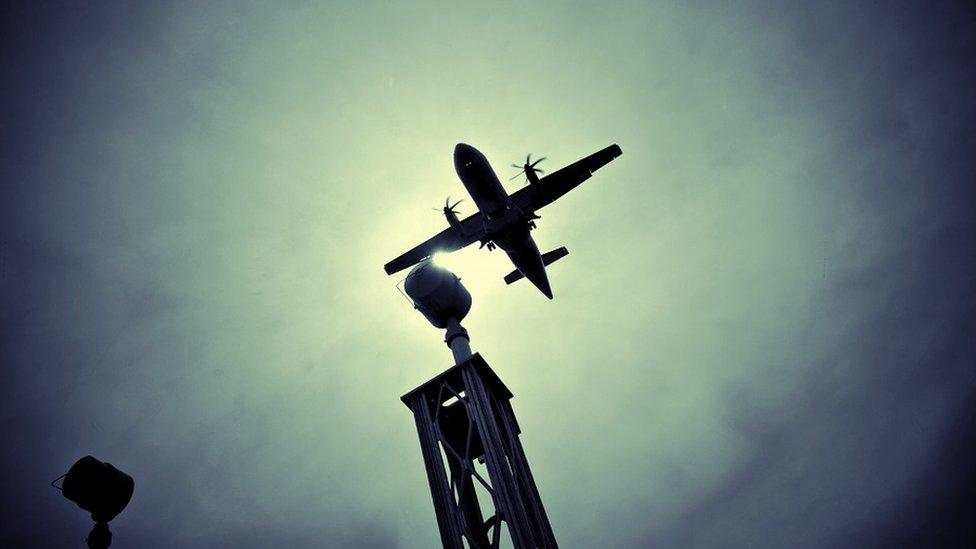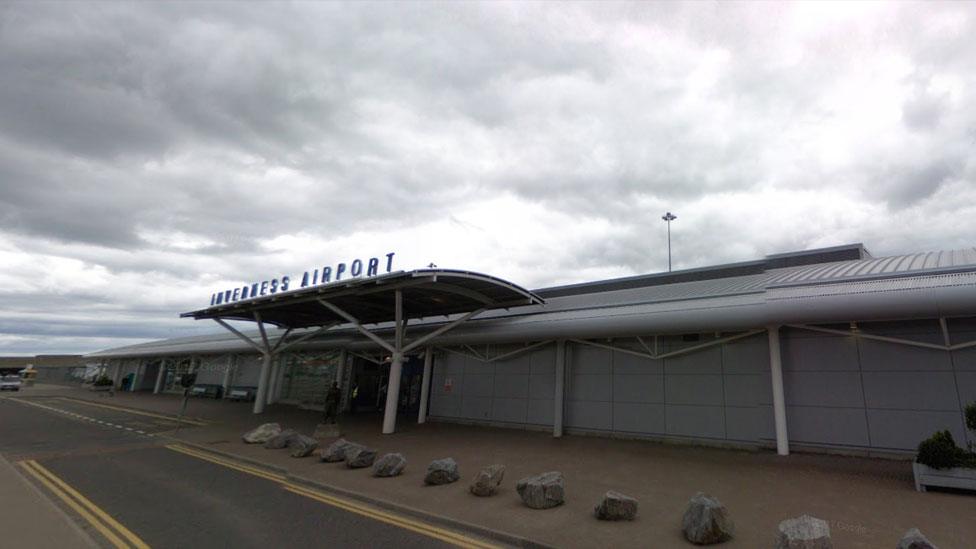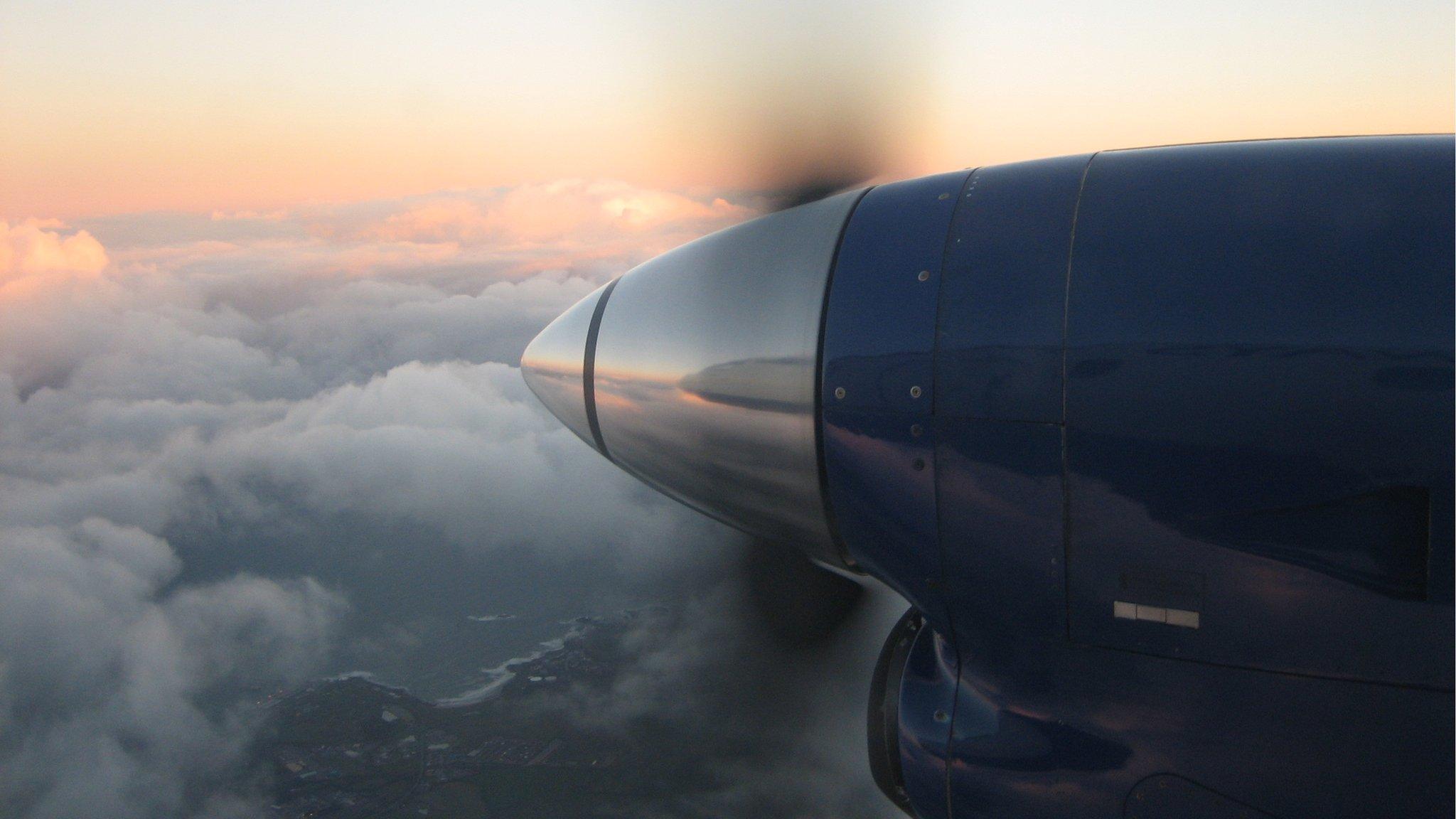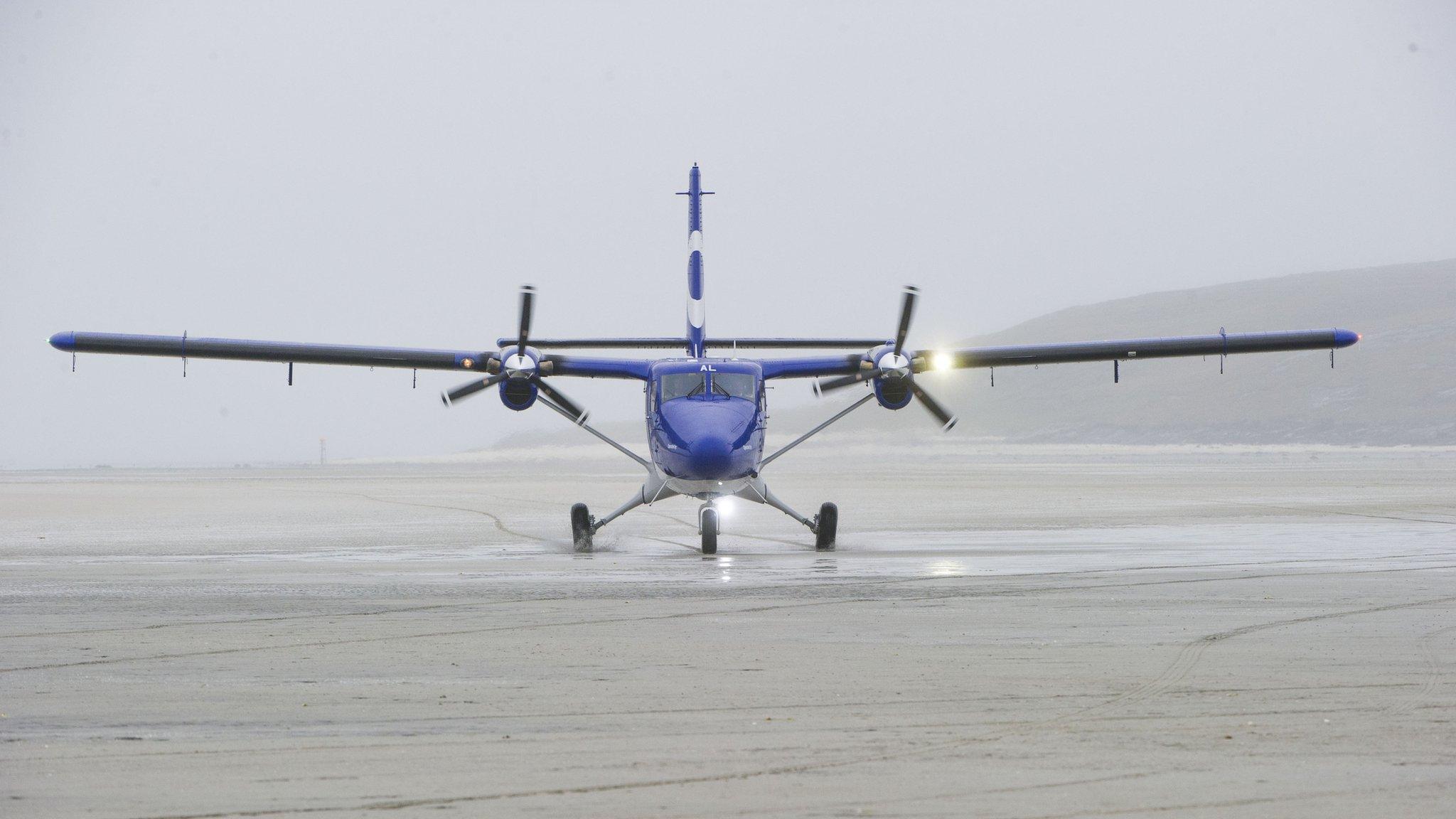Centralising air traffic control for Hial airports 'unsafe'
- Published

Air traffic control at six regional airports is to be managed centrally
Plans for unmanned air traffic control towers at airports serving island communities are "unsafe and untested", MSPs have been told.
Highlands and Islands Airports Ltd (Hial) has proposed controlling traffic at six airports centrally from a hub in Inverness.
Hial said similar systems were already in use elsewhere in Europe.
Campaigners opposed to the move told Holyrood's public petitions committee the plan should be scrapped.
The towers would be located at Sumburgh in Shetland, Dundee, Wick John O'Groats, Kirkwall in Orkney, and Stornoway and Benbecula in the Western Isles.
They would feed information to the central hub in Inverness.
The petitions committee heard from two witnesses supporting a petition against the plans.
Peter Henderson, who worked at Kirkwall Airport in Orkney for 18 years as an air traffic assistant, said there was a risk emergency medical flights could be disrupted.
He said: "I cannot with a clear conscience accept that this is safe and I don't want people in my community made more ill or dying because of remote links which are highly unstable."
He said airport control towers have visibility of about 15 miles (24km) on an average day, whereas the remotely-monitored cameras would have a narrower view of only three miles (5km).
Mr Henderson said: "We're reliant on being able to see things.
"Why send all of that 100 miles through cables all through the Highlands for a compressed view?
"It's just wrong. And it's unsafe and it's untested and we're being experimented on."
He said he had left Hial because he "could not cope" with the way it was being run, and he claimed current employees have been prevented from speaking out.
The technology around remote control towers was still "in its infancy", he said.
'Resilience and contingency'
John Doig, who presented the petition on behalf of Benbecula Community Council, said there had been a lack of consultation with communities the move would effect.
He said the proposed changes would mean bad weather could cause "significant delays to scheduled or mail flights to stop them from arriving and departing at the same time".
Committee convener, MSP Johann Lamont, said the witnesses' evidence had been "extremely useful", and further views will be sought from the Scottish government, which owns Hial.
She said: "In this world of remote working I would like to see that as an opportunity to build the local economy in remote communities and this seems to be the opposite.
"I don't think centralisation anywhere is a terribly positive thing."
Prospect, a union representing workers involved in air traffic control, has previously warned of the move would result in the loss of high quality jobs in island communities
Western Isles local authority, Comhairle nan Eilean Siar, has also raised similar concerns.
Hial said its air traffic management system needed to transformed to meet operational needs now and into the future.
It said digital tower technology had been operational since 2015 and was already being used, or in the process of being introduced, for Norwegian, Swedish, German, Dutch, Danish, Belgian, Irish and UK air traffic management.
A spokesman said: "Our project will have safety, resilience and contingency built in. Our regulator would not permit us to do otherwise."
- Published5 July 2018

- Published8 January 2018

- Published26 April 2017

- Published7 April 2017
